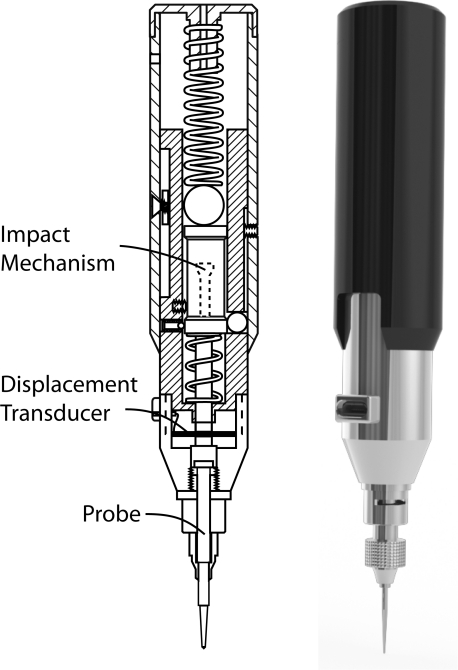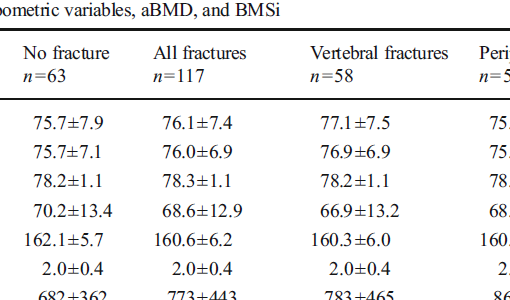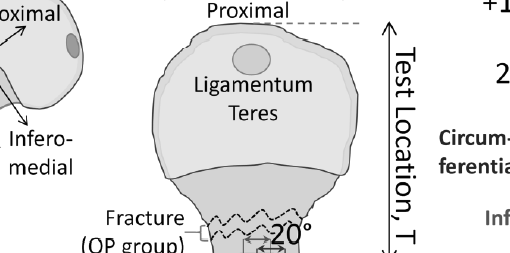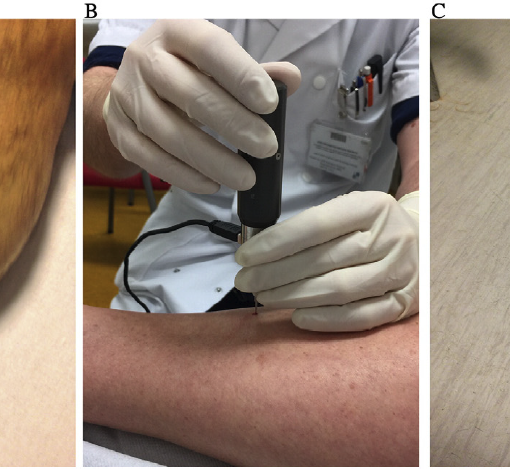Abstract
Here we describe a novel, hand-held reference point indentation (RPI), instrument that is designed for clinical measurements of bone material properties in living patients. This instrument differs from previous RPI instruments in that it requires neither a reference probe nor removal of the periosteum that covers the bone, thus significantly simplifying its use in patient testing. After describing the instrument, we discuss five guidelines for optimal and reproducible results. These are: (1) the angle between the normal to the surface and the axis of the instrument should be less than 10°, (2) the compression of the main spring to trigger the device must be performed slowly (>1 s), (3) the probe tip should be sharper than 10 μm; however, a normalized parameter with a calibration phantom can correct for dull tips up to a 100 μm radius, (4) the ambient room temperature should be between 4 °C and 37 °C, and (5) the effective mass of the bone or material under test must exceed 1 kg, or if under 1 kg, the specimen should be securely anchored in a fixation device with sufficient mass (which is not a requirement of previous RPI instruments). Our experience is that a person can be trained with these guidelines in about 5 min and thereafter obtain accurate and reproducible results. The portability, ease of use, and minimal training make this instrument suitable to measure bone material properties in a clinical setting.
https://www.ncbi.nlm.nih.gov/pubmed/22559552
Rev Sci Instrum. 2012 Apr;83(4):044301. doi: 10.1063/1.3693085.





